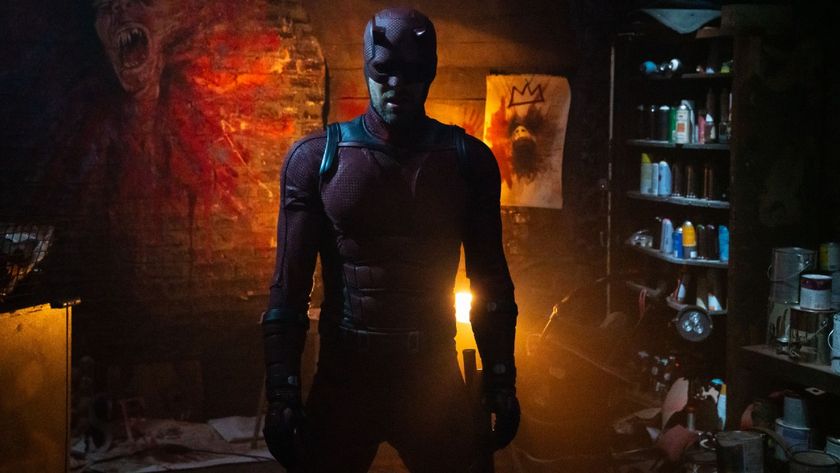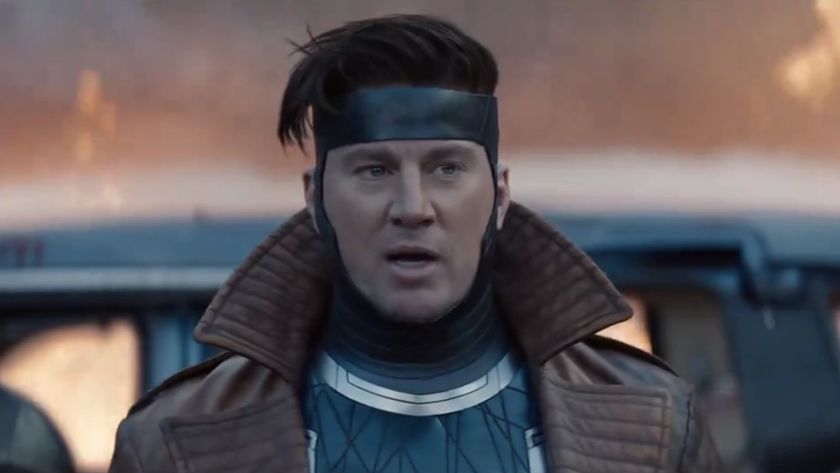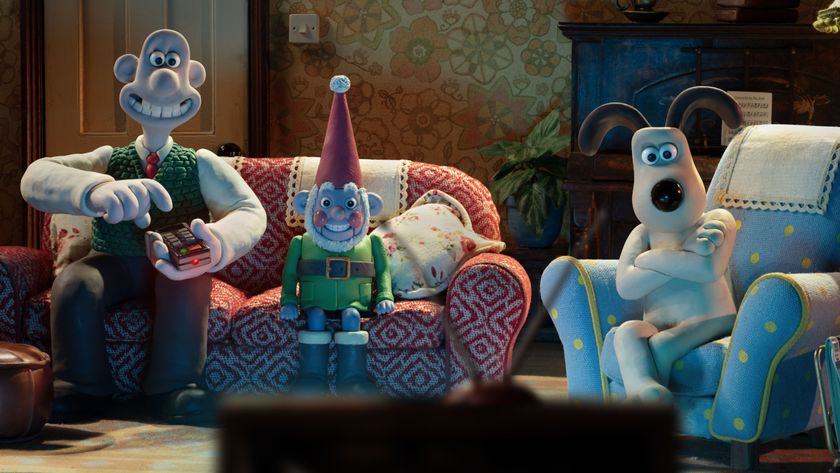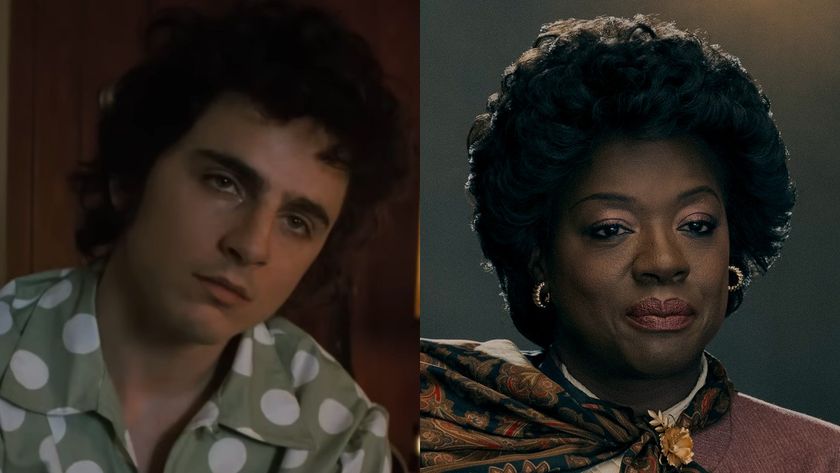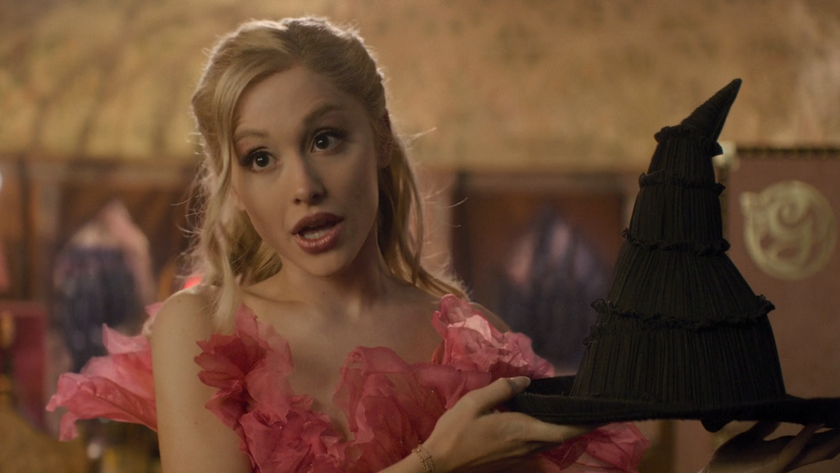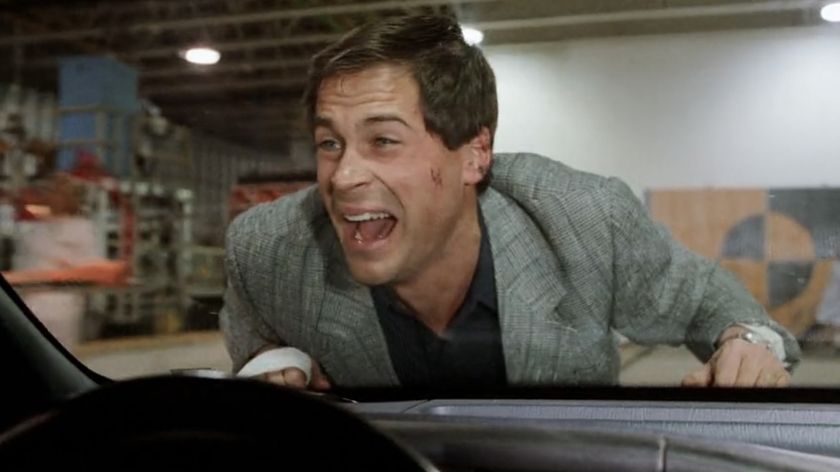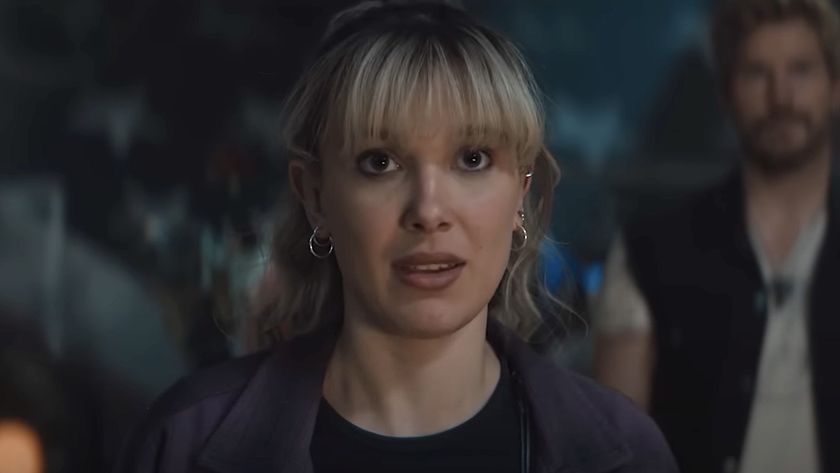How Should Marvel Balance Its Cosmic Side Following Avengers 4?
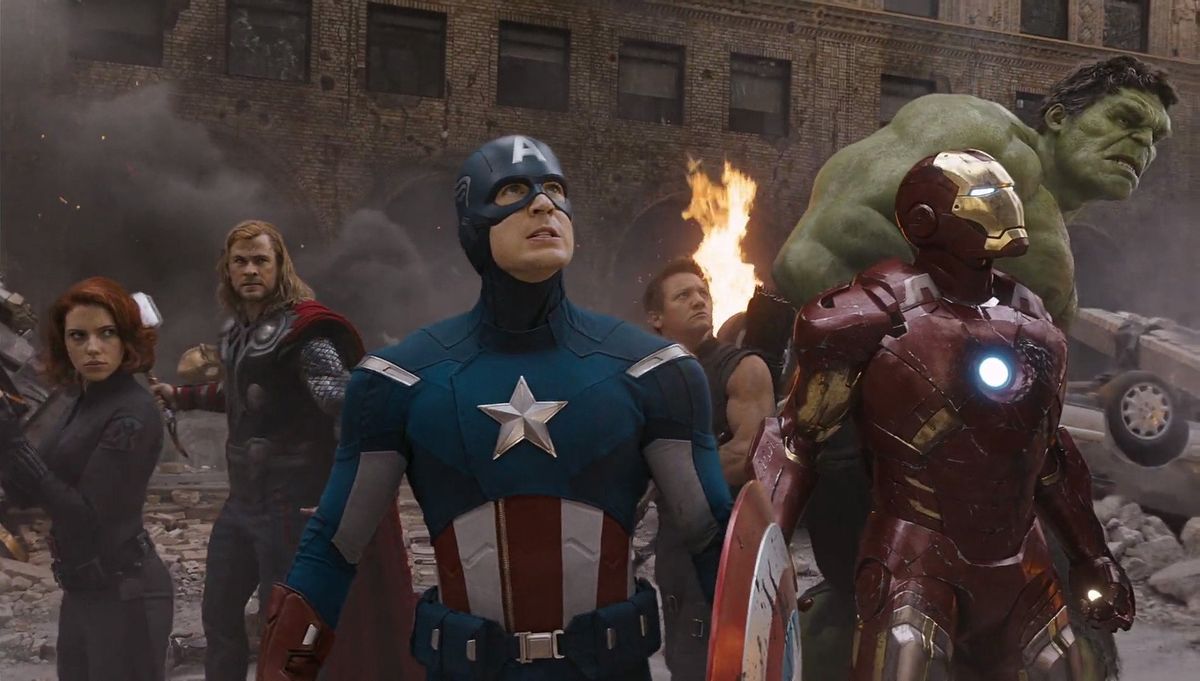
Marvel Studios has very purposefully kept their future plans beyond the untitled Avengers 4 a secret, but a few months back we received a significant clue about what to expect. In announcing that he would be back to write and direct Guardians of the Galaxy Vol. 3, James Gunn revealed that it is also his intention to help seriously expand the existence of the Marvel Cinematic Universe's cosmic side leading into the next ten to 20 years. It was news that we've been thinking about ever since, weighing the pros and cons of the approach, and now we've decided to translate that pondering into feature form.
Obviously Marvel Studios isn't totally giving up on Earth-bound stories (we already know Spider-Man is getting a sequel in 2019), but is the best choice for the future of the massive franchise to greatly expand their investment in aliens, starships, and space-set stories? We break it all down below and across the next few pages, so read on, and tell us what you think in the comments section below!
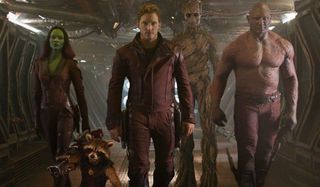
Pro: There are a lot of great cosmic characters who can't just be explored in Guardians of the Galaxy movies.
While recently talking about the end credits scenes featured in Guardians of the Galaxy Vol. 2, writer/director James Gunn made an interesting note: the teases of Yondu's original Ravager team and Adam Warlock may have seemed like hints towards Guardians of the Galaxy Vol. 3, that's not necessarily the case. This news actually came as a bit of a relief to those imagining the challenge of dovetailing those two disparate stories into one narrative, but has also left us wondering exactly how both exciting threads will wind up being serviced in upcoming blockbusters. The answer, naturally, is Marvel's plans for an expanded focus on cosmic stories, which wonderfully highlights one of the move's benefits.
Making more than just Guardians of the Galaxy movies set in the outer reaches of space will not only give Marvel Studios the opportunity to give characters like the Guardians 3000 team or Adam Warlock their very own films, but also so, so much more. There are hundreds of great heroes and villains that exist in the annals of Marvel Comics, and an expansion of the cosmic films will provide them the potential real estate needed to launch onto the big screen.
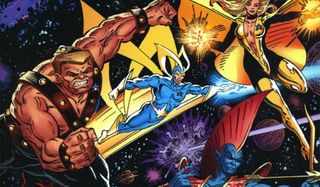
Con: Marvel Cosmic has a long history, but its overall popularity really doesn't compare.
Both Earth-bound and cosmic stories have been told in the pages of Marvel Comics ever since the company's doors opened, and both have earned legions of fans and loyal readers, but there's also no denying which side has ranks higher in the popularity department. Hell, there's a reason why nobody knew who the Guardians of the Galaxy were before the movie -- despite the fact that the team has been around since the late 1960s. In this arena, consumer demand has been pretty clear, so might not be the best call to heavily favor the cosmic side when it comes to allocating resources.
The number of Marvel Studios movies being released per year has steadily risen since 2008, but there is a ceiling that can be hit, and they're getting pretty damn close to it. There are only so many viable release dates available throughout the year, and then there's the looming risk of saturating the market. This in mind, it's hard not to imagine development of Earth-bound stories slowing in favor of outer space narratives, and that isn't the greatest news to fans who have shown preference over the "local" tales for decades.
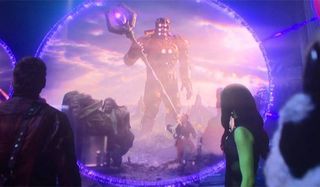
Pro: Space stories allow the introduction of new and different stakes that can't necessarily exist on Earth.
When it comes to blockbusters set here on our planet, stakes don't get much bigger than "destruction of the world" -- and the truth is that we've already seen a few variations on that in the Marvel Cinematic Universe. Because of this, one sincere challenge that will face the studio in coming years is finding an alternative to this particular narrative choice -- but one thing that will certainly expand their options is the further introduction of a populated universe full of different cultures, politics, and weapons.
CINEMABLEND NEWSLETTER
Your Daily Blend of Entertainment News
There are millions of movies cataloging emotional and physical stakes of events here on Earth, but a science-fiction story that introduces us to an entirely new alien civilization means that characters start working towards different objectives, and new things are possible that are unlike anything we've ever seen. Expanding the interest into the far reaches of the Marvel Cinematic Universe opens the doors to telling stories completely new to audiences, and there is no understanding that factor's importance.

Con: There is something undeniably great about seeing the fantastical happen in ordinary environments.
One thing that separated Marvel Comics from DC Comics early in the day was the settings for the stories. While creators at DC utilized fictional locations like Metropolis, Gotham, and Coast City, Stan Lee, Jack Kirby, Steve Ditko and the rest of the masterminds at Marvel made the choice to have heroes like Doctor Strange and Spider-Man working their magic and spinning their webs in New York City. This has always been a particular charm of the storytelling -- allowing us to better imagine heroes doing their work in our own world -- and it would be something that we would lose with a stronger emphasis put on cosmic storytelling on the big screen.
As noted earlier, we will probably always see Marvel Studios producing movies that are set here on our own planet, but we may start missing out on the experience as the franchise looks towards a cosmic expansion. It's true that these stories could still wind up affecting events on Earth in some way, as we saw in Guardians of the Galaxy Vol. 2, but just like the complaint that too many Infinity Stones are showing up on the third rock from the sun, that approach can eventually get a bit ham-fisted and feel way too coincidental.
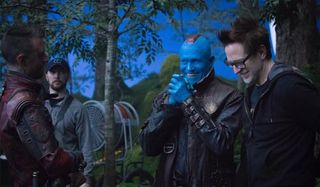
Pro: James Gunn has been planning for this kind of cosmic future for years now.
Hollywood is an industry known to be led by the occasional knee-jerk reaction. If something special winds up becoming a hit, it can entirely alter the entire movie-making process. Sadly, this process has resulted in a lot of bad blockbusters that get rushed into production before they are fully thought out -- but this definitely isn't the case for the cosmic side of the Marvel Cinematic Universe. As has been reported about many times, James Gunn was ultimately long prepared for the incredible success of Guardians of the Galaxy, because years ago he went as far as to craft an entire bible for the cosmic side of the comic book franchise.
While Marvel Studios President Kevin Feige is considered to be the mastermind behind the Marvel Cinematic Universe as a whole, James Gunn has clearly established himself as the czar of the cosmic realm, and that only spells good things for its teased expansion. This is a man who has a detailed knowledge of everything from the Ravager clans to the Nova Corps to the Kree radicals, and it's easy to see that providing a bedrock for years and years of storytelling.
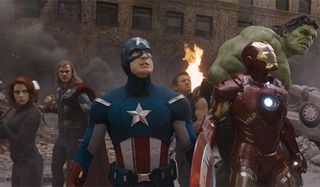
Con: Everything could become too diffusive, hurting one of the Marvel Cinematic Universe's greatest strengths to date.
Hollywood has been making blockbusters based on comic books for decades, but Marvel Studios brought along a cinematic concept the genre had not seen before. Rather than keeping major heroes separated in their own stories, the idea was to bottle all of them in their very own universe, where the consequences of one story deeply affect the world of the next. This idea has spun gold for the last nine years, but how diffuse can the stories get before the intricate webbing starts to dissolve?
While all of the Earth-bound stories told in the Marvel Cinematic Universe do ultimately affect each other, given that we live on a relatively small planet, the same isn't true for cosmic stories. The Guardians of the Galaxy movies have shown us small pockets of what lies beyond our atmosphere, but they have barely scratched the surface. As has been noted as a positive, this offers up endless potential to do any kind of story, but it also becomes harder to unify everything if it all becomes too far-spread, and that takes away some of the charm of this groundbreaking franchise.
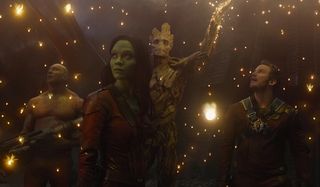
Pro: Freshness worked to the Guardians of the Galaxy's advantage, and it could do the same for other cosmic properties.
You know those cosmic comics that didn't move as well as those about Captain America, Iron Man, and Spider-Man? Just because they didn't have high sale numbers doesn't mean that they weren't telling fun, exciting stories to tell. What's more, these are great stories that even some Marvel die-hards don't really know much about, and even they will have the opportunity to be surprised by big screen adaptations.
Comics are certainly famous for dealing in familiar archetypes, but Guardians of the Galaxy legitimately did evoke a different feeling than the other stories we've seen about well-established pop culture characters. Certainly James Gunn's wonderful skills as a filmmaker had a lot to do with that, but it's also just a special thing to watch something beautiful and unique on the big screen. If Marvel Studios can continue to generate that feeling by furthering exploring the deep cosmos of their Cinematic Universe, there's no reason not to fully embrace the concept.
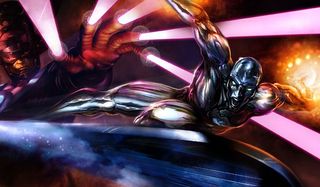
Con: A lot of great cosmic material is still owned by 20th Century Fox.
There are a few items on this list that are entirely under Marvel Studios' control, but this isn't one of them. Thanks to some dire straits during the 1990s, Marvel Entertainment sold off film rights to some key properties to make some quick money, and while many of the notable properties have returned home, that can't be said for everything. The Fantastic Four are notably still owned by 20th Century Fox, and what's unfortunate is that it will prevent the Marvel Cinematic Universe from using some great characters.
Some of the issues the company faces are more about semantics, as they can use Skrulls but not the Super Skrulls, and The Watchers but not Uatu -- but there are some areas that hit harder. Annihilus -- a terrifying bug-like alien from the Negative Zone -- would make for a great and horrific foe in a future Marvel Cosmic movie, but unfortunately he is off limits. The same is true for the power duo that is the Silver Surfer and Galactus, and the Doctor Doom decedent Kang The Conqueror. There are certainly stories that can be told without all of these characters, but comic book fans will always miss their presence mixing in with other known heroes and villains.

Eric Eisenberg is the Assistant Managing Editor at CinemaBlend. After graduating Boston University and earning a bachelor’s degree in journalism, he took a part-time job as a staff writer for CinemaBlend, and after six months was offered the opportunity to move to Los Angeles and take on a newly created West Coast Editor position. Over a decade later, he's continuing to advance his interests and expertise. In addition to conducting filmmaker interviews and contributing to the news and feature content of the site, Eric also oversees the Movie Reviews section, writes the the weekend box office report (published Sundays), and is the site's resident Stephen King expert. He has two King-related columns.
